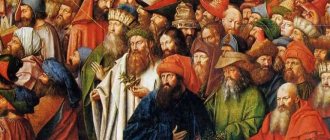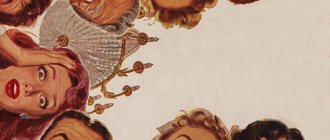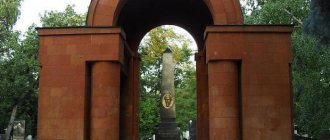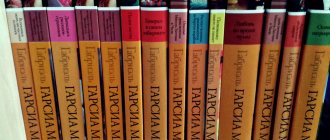Ancient Greek philosopher, founder of cynicism
For other people named Antisthenes, see Antisthenes (disambiguation).
| Antisthenes | |
| Portrait bust of Antisthenes found at the Villa Cassius in Tivoli, 1774 (Museo Pio-Clementino) | |
| Born | c. 446 BC [1] Athens |
| Died | c. 366 BC [1] (age about 80 years old) Athens |
| Era | Ancient Greek philosophy |
| Region | Western philosophy |
| School | Cynicism |
| Main interests | Asceticism, ethics, language, literature, logic |
| Notable ideas | Laying the Foundations of Cynic Philosophy The Difference Between Sense and Reference |
Influences
| |
Influenced
| |
Antisthenes
(/æntɪs&thetas; ɪпiг/; [2] Greek: Ἀντισθένης; c. 446 - c. 366 BC..) [1] was a Greek philosopher and student of Socrates. Antisthenes first studied rhetoric under Gorgias before becoming an ardent student of Socrates. He accepted and developed the ethical side of Socrates' teachings, advocating an ascetic life lived in accordance with virtue. Later writers considered him the founder of Cynic philosophy.
Biography
He was half Greek, half Thracian. Participated in the Battle of Tanagra. Before joining Socrates, Antisthenes studied with the sophist Gorgias. Sophistry had a significant influence on the philosophy of early Antisthenes; Researchers find traces of this influence in surviving works. In adulthood, Antisthenes becomes a follower of Socrates. Antisthenes was present at the dying conversation of Socrates, recorded in the works of Plato.
After the death of Socrates, Antisthenes opened his own school in Athens in the gymnasium for non-full citizens on Kinosarga (by this name, according to one version, his followers began to be called Cynics). However, Antisthenes had few students and he was harsh with them. A famous student of Anstephenes was Diogenes of Sinope. Antisthenes walked with a long beard, a staff, a bag and a cloak.
Died of consumption.
Further reading[edit]
- Branham, R. Bracht; Cazé, Marie-Odile Goulet, ed. (1996). The Cynics: The Cynical Movement in Antiquity and Its Legacy
. Berkeley: University of California Press. - Fuentes Gonzalez, Pedro Pablo (2013). “En defensa del encuentro entre dos Perros, Antistenes y Diógenes: historia de una tensa amistad.” Cuadernos de Filología Clásica: Estudios Griegos e Indoeuropeos
.
23
: 225–267 (reprinted in: V. Suvac [ed.], Antisthenica Cynica Socratica, Prague: Oikoumene, 2014, pp. 11–71). - Guthrie, William Keith Chambers (1969). The Enlightenment of the Fifth Century
.
History of Greek philosophy. 3
. London: Cambridge University Press. - Navia, Louis E. (1996). Classical Cynicism: A Critical Study
. Westport, CT: Greenwood Press. - Navia, Louis E. (1995). The Philosophy of Cynicism An Annotated Bibliography
. Westport, CT: Greenwood Press. - Prince, Susan (2015). Antisthenes of Athens: texts, translations and commentaries
. University of Michigan Press. - Rankin, H. D. (1986). Anthisthenes Sokratikos
. Amsterdam: AM Hakkert. ISBN 90-256-0896-5. - Rankin, H. D. (1983). Sophists, Socratics and Cynics
. London: Croom Helm. - Sayre, Farrand (1948). "Antisthenes Socratic." Classic Magazine
.
43
: 237–244.
Teaching
Although the influence of teachers is clearly visible in Antisthenes' theory, he contradicts the Sophists and deviates far from other students of Socrates (Xenophon, Plato, Euclid, Phaedo, Aristippus). According to some opinion, his transition to Cynicism could be associated with the impression that the execution of Socrates left on him[1].
Antisthenes is the first nominalist who rejects the existence of general concepts and argues that ideas exist only in the human mind. According to Antisthenes, synthetic propositions are false. Objects are separate and individual, not involved in any generalization; they can be named and compared, but not defined. Hence, developing Socrates’ idea of concepts, he gave the definition: “A concept is that which expresses what an object was or what it is.”
Antisthenes opposed the division of the world, traditional since the times of the Eleatic school, into intelligible (“according to truth”) and sensory (“according to opinion”) existence, which anticipated Aristotle’s criticism of Plato’s ideas.
The main task of philosophy, Antisthenes argued, is to study the inner world of man, to understand what is the [true] good for man. Antisthenes himself and his students argued that it is good for a person to be virtuous.
Antisthenes preached asceticism, naturalness, and the priority of personal interests over state interests. Denying traditional religion and the state, he and Diogenes were the first to call themselves not citizens of any particular state, but citizens of the whole world - cosmopolitans.
Antisthenes consistently applied the principle of radical asceticism to various sections of philosophy (from logic and ethics to politics, pedagogy and theology). Antisthenes' asceticism was associated with the idea of life according to nature (nature). Antisthenes found the highest criterion of truth in virtue, and considered the goal of knowledge and philosophy to be the coincidence of the ethical and the natural in “autarky” (independence) from social influences and human institutions.
In logic, Antisthenes believed that “only one thing can be said about one thing, namely only his own name”; a subject cannot be assigned a predicate distinct from it; a statement can only be tautological. (In this, researchers see Antisthenes’ polemic with Plato and his doctrine of ideas as the basis, including predication.)
The basis of Antisthenes' ethics is the doctrine of autarky, self-sufficiency. Not depending on anything external, limiting ourselves, we thereby become like a deity, who is also self-sufficient (but unlike us, thanks to the [self]abundance of good). A person can achieve a state of self-sufficiency only by limiting his needs, spending his life in work, avoiding such pleasure and luxury that are detrimental to a person. Those. Antisthenes (following Socrates) believed that virtue can be taught, and that happiness is possible only from virtue: “it is enough to be virtuous in order to be happy: for this nothing is needed except Socratic power. Virtue is manifested in actions and does not need either an abundance of words or an abundance of knowledge” (DL VI 11)[1].
Antisthenes and his student Diogenes of Sinope were the most consistent, uncompromising Cynics. They brought the principle of the ancient Greek philosophers of “correspondence of the form of life to its internal content” to obvious demonstrativeness. The image of a sage in general, created by Antisthenes, was further developed in Stoicism, and by the image of a Cynic in particular created by him - a short double cloak on a naked body, a long beard, a staff, a beggar's bag - Cynics were identified throughout antiquity. As Diogenes Laertius stated about him: “Apparently, it was he who laid the foundation for the strictest Stoic customs... He was a model of dispassion for Diogenes, self-control for Crates, steadfastness for Zeno: it was he who laid the foundation for their buildings” (DL VI 14–15 )[1].
The titles of about 70 works of Antisthenes are known, of which several fragments and two early sophistic texts in their entirety have survived: Ajax and Odysseus. The style of the surviving texts is careless, the speech is ordinary, and sometimes vulgar.
Antisthenes' political views were extremely unique: he rejected laws and all social conventions, and proposed looking for a model for building human society in animals.
Notes[edit]
- ^ a b c
Luz, Menachem (2019).
"Antisthenes' Portrayal of Socrates" from Brill's Companion to the Techniques of Socrates
. Koninklijke Brill NV, Leiden, The Netherlands: Brill. paragraph 124. ISBN 978-90-04-39674-6. - Jones, Daniel; Roach, Peter James; Hartman, James; Setter, Jane, ed. (2006). Cambridge Dictionary of English Pronunciation
(17th ed.). Cambridge UP. - Suda
,
Antisthenes
.; Laertius 1925, §1. - ^ a b c
One or more of the preceding sentences incorporate text from a publication now in the public domain: Chisholm, Hugh, ed.
(1911). "Antisthenes". Encyclopædia Britannica
.
2
(11th ed.). Cambridge University Press. paragraph 146. - Plato, Phaedo
, 59b. - Laertius 1925, §9.
- Plutarch, Lycurgus
, 30. - Evdokia, Violarium
, 96 - Diodorus Siculus, XV. 76.4
- Laertius 1925, § 13.
- Athenaeus, v. 220s-e
- Athenaeus, xi. 508c-d
- " Ρος δ᾽, ε᾽ mihi sic placuit ut cetera Antisthenis, hominis acuti magis quam eruditi
."
Cicero, Epistulae ad Atticum
, Book XII, Letter 38, section 2. In English translation: “
the fourth
(δ᾽) and fifth (ε᾽) books
of Cyrus
as pleasant as the others compiled by Antisthenes, he is a man, which is rather acute than learned." - Laertius 1925, § 4.
- Prince, Susan (Department of Classics, University of Colorado, Boulder). LE Review. Navia - Antisthenes of Athens: establishing the rightness of the world
.
Retrieved August 6, 2021. - Navia, Louis E. (2001). Antisthenes of Athens: Establishing the Rightness of the World
. Westport: Greenwood Press. pp. xii, 176. ISBN 0-313-31672-4. - Magill, Frank N. (2003). The Ancient World: A World Biographical Dictionary
. Rutledge. P. . ISBN 978-1-135-45740-2. - Judge, Harry George; Blake, Robert (1988). World history
. Oxford University Press. paragraph 104. ISBN 978-0-19-869135-8. - Laertius 1925, § 10.
- ^ a b
Laertius 1925, § 11. - Julian, Oration
, 6.181b - Laertius 1925, § 3, 7.
- Laertius 1925, §3.
- Xenophon, Symposium
, iv. 41. - Laertius 1925, §12.
- Laertius 1925, § 11-12, 104-105.
- Cicero, De Natura Deorum
, i. 13. - Clement of Alexandria, Stromata
, vol. - ^ a b
Aristotle,
Metaphysics
, 1043b24 - Simplicius, in Arist.
Cat. 208, 28 - Prince, Susan (2015). Antisthenes of Athens: texts, translations and commentaries
. University of Michigan Press.p. 20 - Prince 2015, pp. 518-522. (Literary remains of Antisthenes: T 153B.1).
- Aristotle, Metaphysics
, 1024b26;
Rhetoric
, 1407a9;
Topics
, 104b21;
Politics
, 1284a15 - Long 1996, p.32
- Laertsky +1925, § 6, 18, 21; Dion Chrysostom, Orations
, viii.
1–4; Elian, H. 16; Stobaeus, Florilegium
, 13.19 - ^ a b
Long 1996, p. 45 - Dudley 1937, pages 2-4
- Navia, Diogenes the Cynic
, p.100 - Navia, Diogenes the Cynic
, pages 34, 112-3 - Xenophon, Symposium
, iv. 34–44. - Laertius 1925, § 15.
Aphorisms
| : Incorrect or missing image | This section is missing references to information sources. Information must be verifiable, otherwise it may be questioned and deleted. You may edit this article to include links to authoritative sources. This mark is set April 14, 2013 . |
K:Wikipedia:Articles without sources (type: not specified)
- Having once learned that Plato spoke ill of him, he remarked: “This is the lot of kings: to do good and hear bad.”[1]
- When Antisthenes tried to show off a hole in his cloak, Socrates remarked: “Through this hole I see your vanity!”
- Antisthenes wrote: “Whoever has achieved wisdom should not be interested in sciences or books, so that he is not distracted by extraneous things and opinions.”
- Antisthenes wrote: “According to the opinions of men, there are many gods; By nature, God is one.”
- One day he advised the Athenians to adopt a decree: “Consider donkeys as horses.” When this was considered absurd, he remarked: “But you make ignorant people commanders by simple voting?”
- The Cyrenaic Aristippus was once asked what benefit philosophy had brought him; Aristippus replied: “Given the ability to speak with anyone.” When the same question was asked to Antisthenes, he, in defiance of Aristippus (who was reproached for his luxurious life), replied: “Given the ability to speak to himself.”
- Antisthenes is credited with saying “I would prefer madness to pleasure” (DL VI 3). He also stated that “only a wise man knows who is worth loving” (DL VI 3), and in relationships with women he recommended dating only those who would be grateful for it[1].
- Labor is a good (as an example, Antisthenes cited from the Hellenes Hercules with his twelve labors, from the barbarians - Cyrus, whose hard work is described by Xenophon in the Cyropaedia, making it clear that his contemporaries and fellow countrymen are far from this good).
- It is better to be caught by vultures than by flatterers; those devour the dead, these the living (generally a favorite play on words by the ancients: κόρακες and κόλακες, “crows” and “flatterers”).
- Just as rust eats up iron, so envious people are consumed by their own character.
- Those who want to achieve immortality must live piously and justly.
- The fraternal closeness of like-minded people is stronger than any walls.
- On the road you need to stock up [only] on what you won’t lose even in a shipwreck.
- Restraint is more necessary for those who hear bad things about themselves than for those at whom stones are thrown.
- All who strive for virtue are friends with each other.
- Do not neglect your enemies: they are the first to notice your mistakes.
- It is absurd, while winnowing the chaff from the bread and excluding weak warriors from the army, not to free the state from bad citizens.
- There is one virtue for a man and a woman.
- What is the happiest thing for a person? Die happy.
- Which science is the most necessary? The science of forgetting unnecessary things.
- How to become beautiful and kind? Learn from knowledgeable people that you need to get rid of the vices that you have.
- States perish when they cease to distinguish the bad from the good.
Elements of Antisthenes’ “antisocial” program:
- Obscurity is a blessing.
- In public life, the sage is guided not by generally accepted laws, but by the laws of virtue.
- Value a fair person more than your own.
Elements of the Antisthenes individual program:
- For a sage, nothing is alien or inaccessible.
- A wise man marries to have children, moreover from the most beautiful women.
- A wise man will not avoid love affairs - for only a wise man knows who is worth loving.
The statements of Antisthenes have been preserved, which were picked up by subsequent schools as an ethical model:
- To be happy, it is enough to be virtuous; It is possible to teach virtue to a person.
- Virtue is manifested in actions and does not require either an abundance of words or an abundance of knowledge; all who strive for virtue are friends with each other.
- You need to make courageous and fair people your comrades; It is better to fight among a few good people against many bad ones, than among many bad people against a few good ones.
- Consider everything bad to be alien to you.
- Understanding, understanding, knowledge are unshakable; they cannot be crushed by force, nor overcome by treason; they must be made up of irrefutable/proven propositions.
Literature
- Antisthenis fragmenta, Turici, 1842.
- Fragmenta philosophorum graecorum, v. 2, P., 1867.
- Chappuis Ch., Antisthene, P., 1854; Duemmier F., Antisthenica, Halis, 1882.
- Gompertz T., Greek Thinkers, trans. from German, vol. 2, St. Petersburg, 1913.
- History of philosophy, vol. 1, M., 1940, p. 146-149.
- "Anthology of Cynicism". Moscow, ed. "Science", 1984.
- Diogenes Laertius. "On the life, teachings and sayings of famous philosophers." Moscow, ed. "Thought", 1986.
- V. Ya. Kisil, V. V. Ribery. "Gallery of Ancient Philosophers", in 2 volumes. Moscow, 2002. ISBN 5-8183-0414-0.
Links[edit]
- Brancacci, Aldo. Oikeios logos. La filosofia del linguaggio di Antistene, Naples: Bibliopolis, 1990 (French Antisthene, Le discours propre, Paris, Vrin, 2005)
- Dudley, Donald R. (1937), History of Cynicism from Diogenes to the 6th Century AD
. Cambridge - Laertius, Diogenes (1925). "The Cynics: Antisthenes". Lives of Eminent Philosophers
.
2:6
. Translated by Hicks, Robert Drew (two-volume ed.). Loeb Classical Library. § 1–19.CS1 maint: ref=harv (link) - Long, A.A. (1996), "The Socratic Tradition: Diogenes, the Boxes and the Hellenistic Ethics", in Bracht Branham, R.; Goulet-Caz Marie-Odile, The Cynics: The Cynical Movement in Antiquity and Its Legacy
. University of California Press. ISBN 0-520-21645-8 - Luis E. Navia, (2005), Diogenes the Cynic: War against Peace
. Books of Humanity. ISBN 1-59102-320-3 - Prince, Susan (2015). Antisthenes of Athens: texts, translations and commentaries
. University of Michigan Press. paragraph 20.
Excerpt characterizing Antisthenes
Rostov looked back angrily at Ilyin and, without answering him, quickly walked towards the village. “I’ll show them, I’ll give them a hard time, the robbers!” - he said to himself. Alpatych, at a swimming pace, so as not to run, barely caught up with Rostov at a trot. – What decision did you decide to make? - he said, catching up with him. Rostov stopped and, clenching his fists, suddenly moved menacingly towards Alpatych. - Solution? What's the solution? Old bastard! - he shouted at him. -What were you watching? A? Men are rebelling, but you can’t cope? You yourself are a traitor. I know you, I’ll skin you all... - And, as if afraid to waste his reserve of ardor in vain, he left Alpatych and quickly walked forward. Alpatych, suppressing the feeling of insult, kept up with Rostov at a floating pace and continued to communicate his thoughts to him. He said that the men were stubborn, that at the moment it was unwise to oppose them without having a military command, that it would not be better to send for a command first. “I’ll give them a military command... I’ll fight them,” Nikolai said senselessly, suffocating from unreasonable animal anger and the need to vent this anger. Not realizing what he would do, unconsciously, with a quick, decisive step, he moved towards the crowd. And the closer he moved to her, the more Alpatych felt that his unreasonable act could produce good results. The men of the crowd felt the same, looking at his fast and firm gait and decisive, frowning face. After the hussars entered the village and Rostov went to the princess, there was confusion and discord in the crowd. Some men began to say that these newcomers were Russians and how they would not be offended by the fact that they did not let the young lady out. Drone was of the same opinion; but as soon as he expressed it, Karp and other men attacked the former headman. – How many years have you been eating the world? - Karp shouted at him. - It’s all the same to you! You dig up the little jar, take it away, do you want to destroy our houses or not? - It was said that there should be order, no one should leave the houses, so as not to take out any blue gunpowder - that’s all it is! - shouted another. “There was a line for your son, and you probably regretted your hunger,” the little old man suddenly spoke quickly, attacking Dron, “and you shaved my Vanka.” Oh, we're going to die! - Then we’ll die! “I am not a refuser from the world,” said Dron. - He’s not a refusenik, he’s grown a belly!.. Two long men had their say. As soon as Rostov, accompanied by Ilyin, Lavrushka and Alpatych, approached the crowd, Karp, putting his fingers behind his sash, slightly smiling, came forward. The drone, on the contrary, entered the back rows, and the crowd moved closer together. - Hey! Who is your headman here? - Rostov shouted, quickly approaching the crowd. - The headman then? What do you need?.. – asked Karp. But before he could finish speaking, his hat flew off and his head snapped to the side from a strong blow. - Hats off, traitors! - Rostov’s full-blooded voice shouted. -Where is the headman? – he shouted in a frantic voice. “The headman, the headman is calling... Dron Zakharych, you,” submissive voices were heard here and there, and hats began to be taken off their heads. “We can’t rebel, we keep order,” said Karp, and several voices from behind suddenly spoke up at the same moment: “Like the old people grumbled, there are a lot of you in charge...” “Talk?.. Riot!.. Robbers!” Traitors! - Rostov screamed senselessly, in a voice that was not his own, grabbing Karp by the yurot. - Knit him, knit him! - he shouted, although there was no one to knit him except Lavrushka and Alpatych. Lavrushka, however, ran up to Karp and grabbed his hands from behind. – Will you order our people to call from under the mountain? - he shouted. Alpatych turned to the men, calling two of them by name to mate Karp. The men obediently emerged from the crowd and began to loosen their belts. - Where is the headman? - Rostov shouted. The drone, with a frowning and pale face, emerged from the crowd. -Are you the headman? Knit, Lavrushka! - Rostov shouted, as if this order could not meet with obstacles. And indeed, two more men began to tie Dron, who, as if helping them, took off the kushan and gave it to them. “And you all listen to me,” Rostov turned to the men: “Now march home, and so that I don’t hear your voice.” “Well, we didn’t do any harm.” That means we are just being stupid. They just made nonsense... I told you there was a mess,” voices were heard reproaching each other. “I told you so,” said Alpatych, coming into his own. - This is not good, guys! “Our stupidity, Yakov Alpatych,” answered the voices, and the crowd immediately began to disperse and scatter throughout the village. The two tied men were taken to the manor's courtyard. Two drunk men followed them. - Oh, I’ll look at you! - said one of them, turning to Karp. “Is it possible to talk to gentlemen like that?” What did you think? “Fool,” confirmed the other, “really, a fool!” Two hours later the carts stood in the courtyard of Bogucharov’s house. The men were briskly carrying out and placing the master's things on the carts, and Dron, at the request of Princess Marya, was released from the locker where he had been locked, standing in the courtyard, giving orders to the men. “Don’t put it in such a bad way,” said one of the men, a tall man with a round, smiling face, taking the box from the maid’s hands. - It also costs money. Why do you throw it like that or half a rope - and it will rub. I don't like it that way. And so that everything is fair, according to the law. Just like that, under the matting and covering it with hay, that’s what’s important. Love! “Look for books, books,” said another man, who was taking out Prince Andrei’s library cabinets. - Don't cling! It's heavy, guys, the books are great! - Yes, they wrote, they didn’t walk! – the tall, round-faced man said with a significant wink, pointing to the thick lexicons lying on top. Rostov, not wanting to impose his acquaintance on the princess, did not go to her, but remained in the village, waiting for her to leave. Having waited for Princess Marya's carriages to leave the house, Rostov sat on horseback and accompanied her on horseback to the path occupied by our troops, twelve miles from Bogucharov. In Yankov, at the inn, he said goodbye to her respectfully, allowing himself to kiss her hand for the first time. “Aren’t you ashamed,” he answered Princess Marya, blushing, to the expression of gratitude for her salvation (as she called his action), “every police officer would have done the same.” If only we had to fight with the peasants, we would not have allowed the enemy so far away,” he said, ashamed of something and trying to change the conversation. “I’m only happy that I had the opportunity to meet you.” Farewell, princess, I wish you happiness and consolation and wish to meet you under happier conditions. If you don't want to make me blush, please don't thank me. But the princess, if she did not thank him in more words, thanked him with the whole expression of her face, beaming with gratitude and tenderness. She couldn't believe him, that she had nothing to thank him for. On the contrary, what was certain for her was that if he had not existed, she would probably have died from both the rebels and the French; that, in order to save her, he exposed himself to the most obvious and terrible dangers; and what was even more certain was that he was a man with a high and noble soul, who knew how to understand her situation and grief. His kind and honest eyes with tears appearing on them, while she herself, crying, talked to him about her loss, did not leave her imagination. When she said goodbye to him and was left alone, Princess Marya suddenly felt tears in her eyes, and here, not for the first time, she was presented with a strange question: does she love him? On the way further to Moscow, despite the fact that the princess’s situation was not happy, Dunyasha, who was riding with her in the carriage, more than once noticed that the princess, leaning out of the carriage window, was smiling joyfully and sadly at something. “Well, what if I loved him? - thought Princess Marya. Ashamed as she was to admit to herself that she was the first to love a man who, perhaps, would never love her, she consoled herself with the thought that no one would ever know this and that it would not be her fault if she remained without anyone for the rest of her life. speaking of loving the one she loved for the first and last time. Sometimes she remembered his views, his participation, his words, and it seemed to her that happiness was not impossible. And then Dunyasha noticed that she was smiling and looking out the carriage window. “And he had to come to Bogucharovo, and at that very moment! - thought Princess Marya. “And his sister should have refused Prince Andrei!” “And in all this, Princess Marya saw the will of Providence. The impression made on Rostov by Princess Marya was very pleasant. When he remembered about her, he became cheerful, and when his comrades, having learned about his adventure in Bogucharovo, joked to him that, having gone for hay, he picked up one of the richest brides in Russia, Rostov became angry. He was angry precisely because the thought of marrying the meek Princess Marya, who was pleasant to him and with a huge fortune, came into his head more than once against his will. For himself personally, Nikolai could not wish for a better wife than Princess Marya: marrying her would make the countess - his mother - happy, and would improve his father’s affairs; and even - Nikolai felt it - would have made Princess Marya happy. But Sonya? And this word? And this is why Rostov got angry when they joked about Princess Bolkonskaya. Having taken command of the armies, Kutuzov remembered Prince Andrei and sent him an order to come to the main apartment. Prince Andrei arrived in Tsarevo Zaimishche on the very day and at the very time of the day when Kutuzov made the first review of the troops. Prince Andrei stopped in the village at the priest’s house, where the commander-in-chief’s carriage stood, and sat on a bench at the gate, waiting for His Serene Highness, as everyone now called Kutuzov. On the field outside the village one could hear either the sounds of regimental music or the roar of a huge number of voices shouting “hurray!” to the new commander-in-chief. Right there at the gate, ten steps from Prince Andrei, taking advantage of the prince’s absence and the beautiful weather, stood two orderlies, a courier and a butler. Blackish, overgrown with mustaches and sideburns, the little hussar lieutenant colonel rode up to the gate and, looking at Prince Andrei, asked: is His Serene Highness standing here and will he be there soon?








